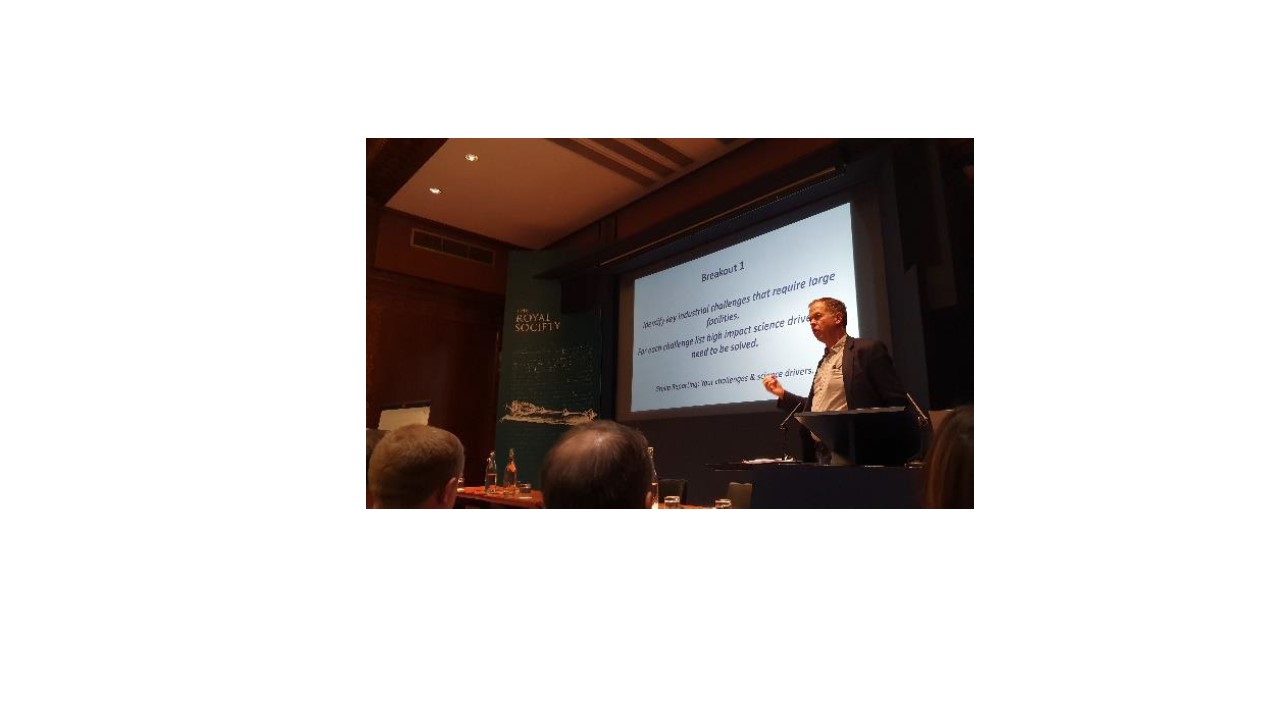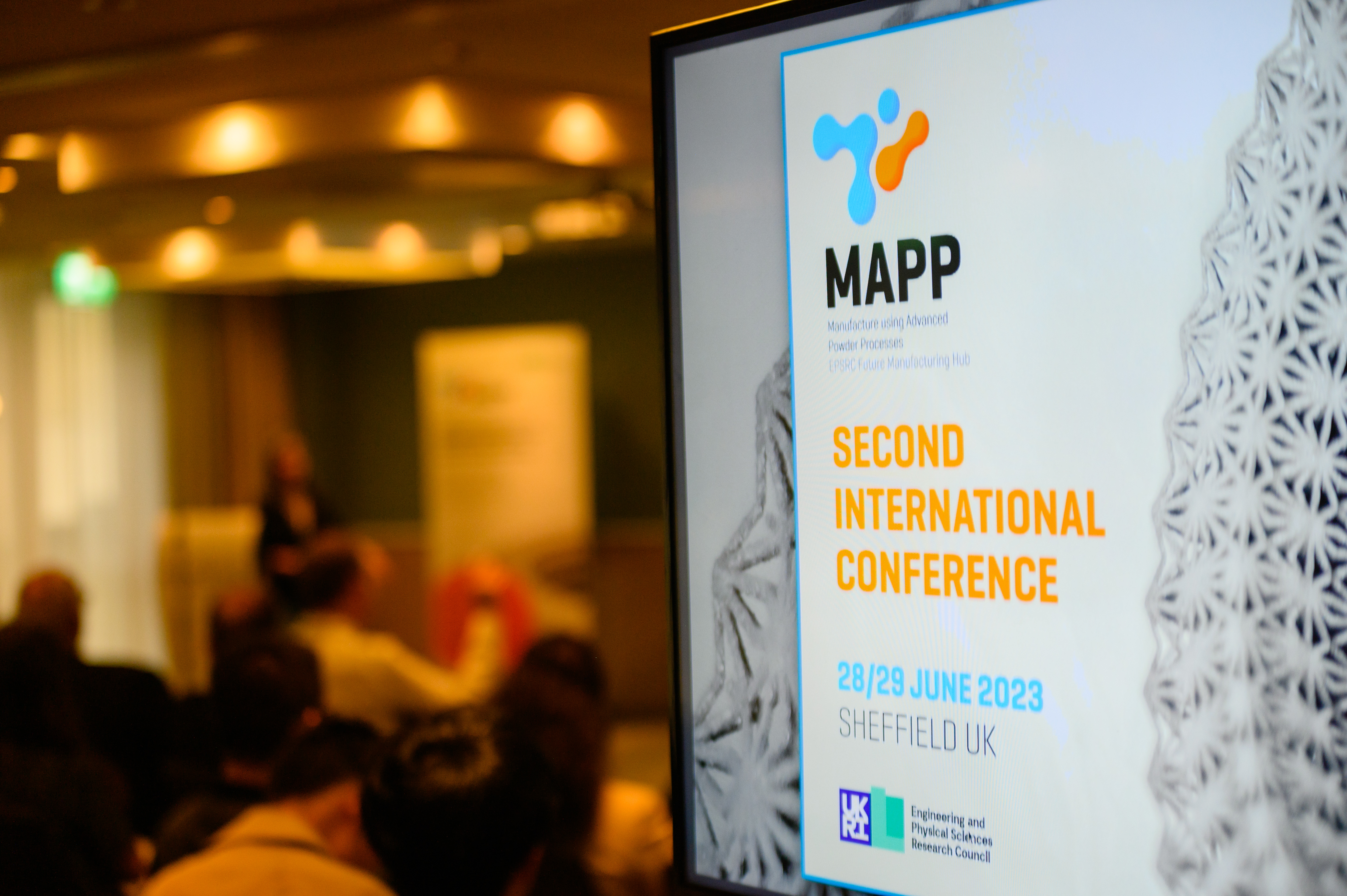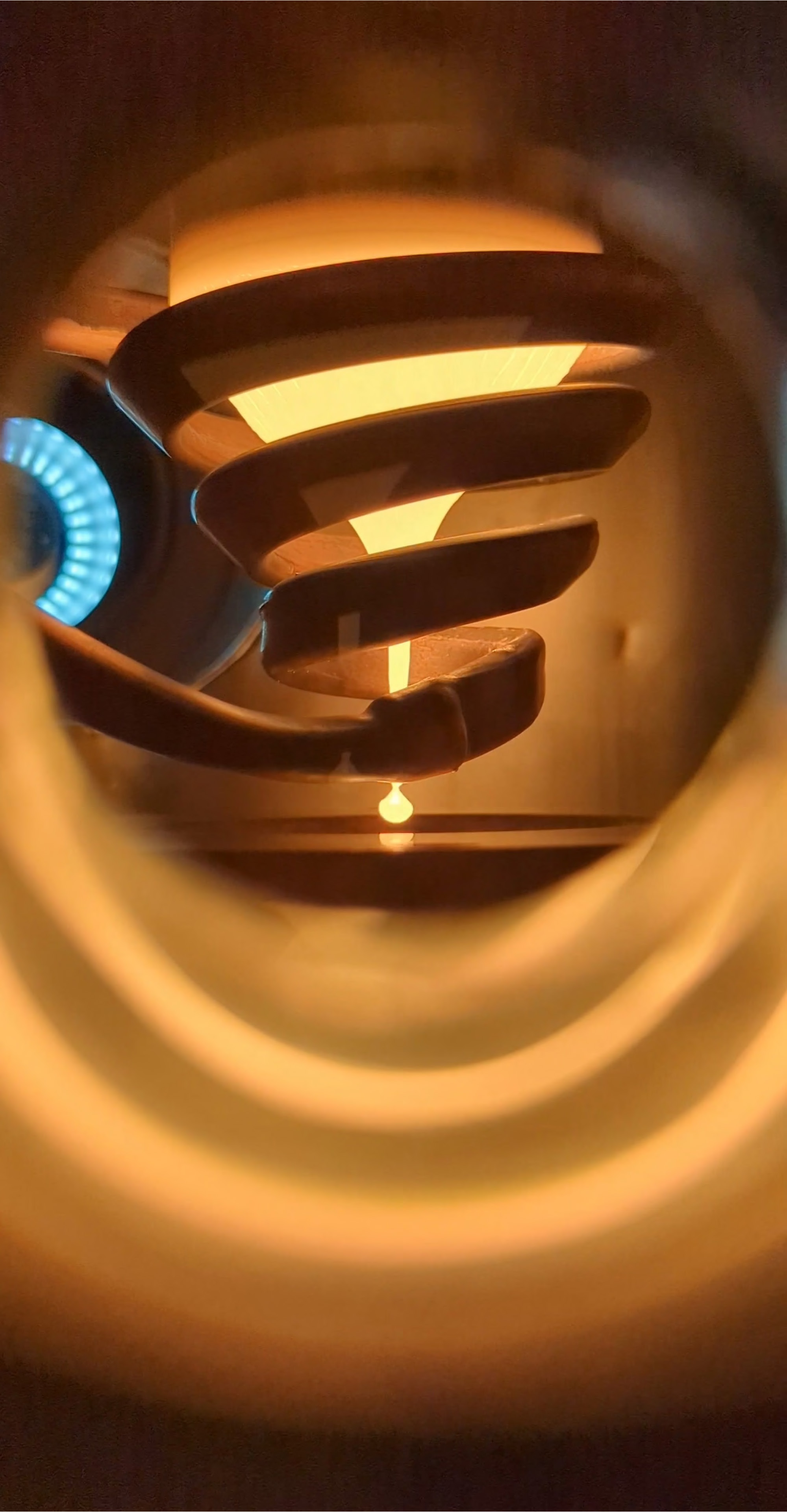All News /
News:
Town Hall Meeting: “Manufacturing the Future utilising the UK’s Large Facilities”
17 / 09 / 20
On January 21st, 2020, 80 people attended a Town Hall meeting at the Royal Society London to discuss how the EPSRC’s Manufacturing the Future and Catalysis hubs, catapults and industry could make even better use of the UK Large Facilities for science, translation and impact.
The purpose was to gather community input, improve communication and provide an opportunity for The Engineering and Physical Sciences Research Council (EPSRC), hubs, Large Facilities (LF’s), industry and individual researchers, to identify and discuss factors that would further increase manufacturing use of LF's
The objectives included:
- To set the national agenda for the Advanced Manufacturing hubs’ and industries’ engagement with LF’s
- To obtain strategic industrial input on how to optimise translation using LF’s
- To elucidate key science drivers required by hubs, catapults and industry
The event included presentations from the hubs and the EPSRC as well as panels looking at LF's capabilities and solutions, industry perspectives and requirements and the hubs’ requirements and vision.

Breakout sessions were held to discuss potential solutions. Attendees were split into eight groups that had been pre-selected to blend industry, LF's, academic and catapult representatives. Each group was assigned a facilitator to drive them to think about the problem, share thoughts and summarise answers at the end.
The top four ‘Specific Needs’ identified by all the groups were:
- Improving spatial/temporal analysis of materials and characterisation of real materials under industrially relevant conditions.
- Data handling - especially support for data accumulated on beamlines including efficient and intelligent analysis and processing
- Lowering the barriers to entry for new researchers seeking to utilise cutting edge techniques at the LF's.
- Translational support for innovations to industry, and direct support for industrial applications.
The community was unanimous about the importance of establishing a centre at Harwell for the interaction of the hubs, their industrial partners and new users, both academic and industrial, with the LF's to address key scientific challenges within the Industrial Strategy.
The Centre would make strategic use of Research Complex at Harwell (RCaH) and facilities across the Harwell Campus, linking scientific excellence, cutting-edge Large-Scale Facilities and industry. It would deliver world-leading innovation in multidisciplinary research and translation through providing equipment, laboratory space and technical expertise for in-situ and operando experiments. It would bring together the Future Manufacturing Hubs, the UK Catalysis Hub, High Value Manufacturing Catapults, UK Industry and the UK’s LF's into RCaH to develop innovation and translate research into industry across the hubs.
More:
News
-

-
Exploring STEM - 4th May 2023
The MAPP Stand was a hit at the Exploring STEM for Girls event at the Octagon on the 4 May 2023.<...

